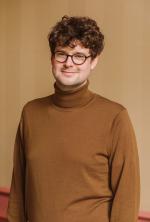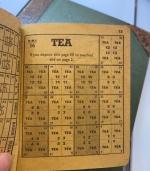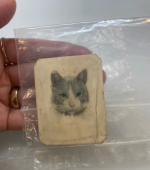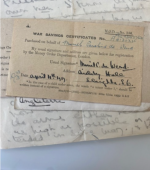
Historical war experiences and the archivist’s voice in the digital age
The workshop was organised by Ilari Taskinen and Risto Turunen of the Research Council of Finland’s Centre of Excellence in the History of Experiences (HEX). The international group of participants use historical sources and digital research techniques to gain insights into people’s personal experiences in times of war. The network arose when NIOD and the universities of Helsinki, Tampere and Luxembourg simultaneously developed initiatives to digitise historical war correspondence. A factor common to all participants in the workshop is that they work with or on digitised versions of historical letters, diaries or other personal documents.
The workshop showed how archivists and historical scholars can collaborate more closely through digitisation and using digital sources. Although historical and archival scholarship developed and professionalised largely as separate disciplines in the twentieth century, it is in the digital context that renewed attention is being paid to the mutual importance of each other’s work for organising, constructing and interpreting historical knowledge.
Despite their different experiences in and with archives, the workshop participants all agreed on one thing: that an archive is the product of a whole series of choices and decisions, and that it is important to reflect on these. Gatekeeping decisions, for example, are made about which material to include or not include in an archive, but the ways in which documents are organised and described also play a role in how interested parties and researchers can access material. Archivists are curators with a voice, as it were; their use of language and methods leave traces in the archives.
The Curatorial Voice
Together with Christelle Timis, who works for WarLux in Luxembourg, Milan & Arvid kicked off the conference with presentations on how wartime relatives and archivists influence the form, materiality, organisation and content of historical personal documents. Timis showed that the different languages used in soldiers’ letters highlight issues relating to archiving, digitisation and historical context. She concluded that members of the Waffen SS from Luxembourg, most of whom wrote home in German, used the Luxembourgish vernacular to underline their national identity.
In our own talk, we emphasised the transformations undergone by NIOD’s war letters over the years. We showed how war letters are more than a reflection of the experiences, perceptions and emotions of the original writers and recipients. The documents also bear traces of the choices made when preserving, discarding and describing historical documents. This includes both the work of professional recordkeepers and the role played by relatives or family members, who sometimes kept personal documents in attics or cellars for decades.
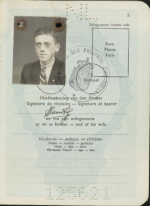
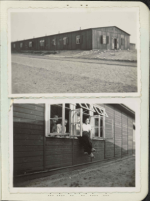
Photos above: The NIOD collection contains a large number of documents that bear the traces of different recordkeepers. Take, for example, this passport in inventory number 1392 of NIOD Collection 247: Correspondence. After the death of the original owner, relatives filled it with personal photos as a souvenir of the deceased – meaning that it served a completely different purpose from the one originally intended.
Research into war experiences
The various presentations on the use of egodocuments in historical research sparked further discussions during the workshop. Doctoral student Benjamin Ragan, affiliated with the Mary Immaculate College in Ireland, spoke about his research on digitised witness statements from the time of the revolution in Ireland. Dr. Nina Janz, Marie Curie fellow at NIOD, presented her research on the transnational experiences of Dutch, Belgian and Luxembourgish Waffen SS volunteers in Germany. Janz showed how the digital availability of historical handwritten letters facilitates quantitative text analysis, and how it has thereby broadened her research methods.
Anna Elisabeth Gehl, a doctoral student at the Freie Universität Berlin, talked about her experiences with both paper and digital archives. Gehl has drawn on digitised letters to investigate a network of British women who volunteered as medical personnel during the First World War, and shared their experiences with the home front. She showed how digitisation makes it more difficult to perceive the colours, smells, and other physical aspects that can shape the researcher’s experience. In this way, the researcher may lose sight of the historical context in which source material was created; such as the paper scarcity that is indicated by bad-quality sheets packed with writing, for instance, or the valuable context information from the small attachments that are found in letter-writers’ collections.
Photos above: Drawing on various items that she accidentally came across in archive boxes, doctoral student Anna Elisabeth Gehl showed how these documents can help scholars to interpret a personal collection and its development.
A disk full of old paper
One of the most obvious benefits of digitising historical source material is that participants from all over the world – from Olympia (US), Iowa, Berlin, Helsinki and Tampere to Amsterdam and Luxembourg – were able to bring their material to the workshop digitally and share it with one another. The personal experiences that are captured in these letters, diaries and other testimonies raise important questions about how such sources should be digitally accessed, contextualised and researched in a responsible manner.
During the workshop, we learned how necessary it is for both historians and archivists to reflect on the consequences of ever-evolving digitisation. It is important to take account of context and various transformations when working with historical material in both ‘analogue’ and digital format. To achieve this, much closer cooperation is required between historians and archivists than is often the case at present. Point duly noted!
